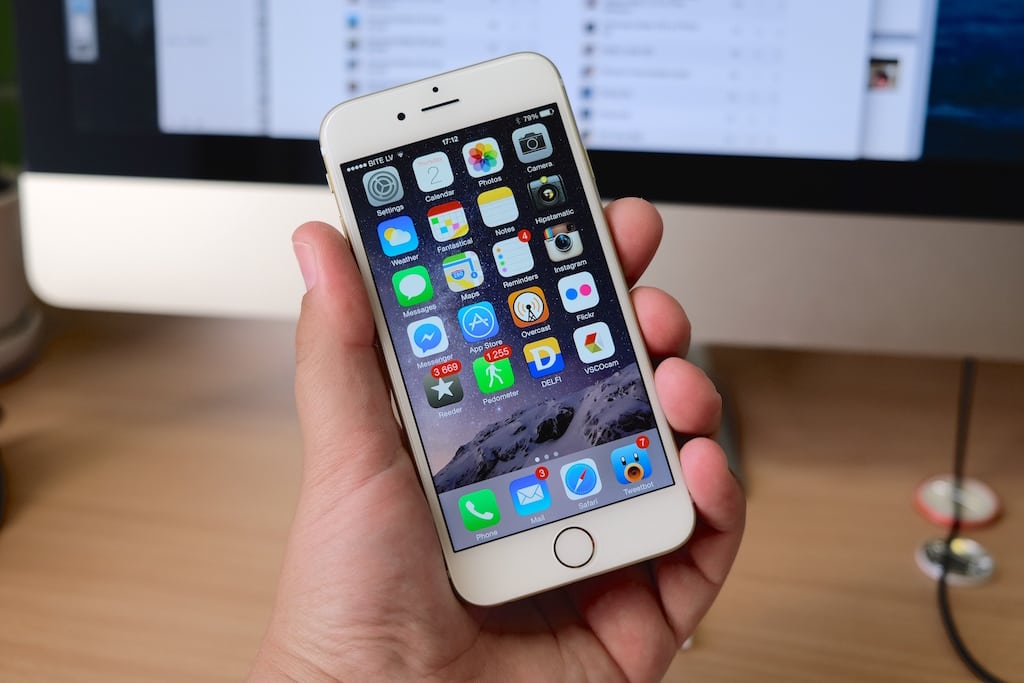Skift Take
Smartphones continue gaining ground with online travel bookings, albeit slowly, and mobile web still outpaces what can be clunky mobile app user experiences.
Travelers that use their mobile devices to book their flights and hotels are an expanding demographic, but growth in mobile bookings hasn’t been explosive in some markets during the past year as most travelers still turn to desktop to book.
Airline and hotel mobile bookings made up 27 percent of all online travel bookings worldwide during the second quarter, according to a report from Criteo, a performance marketing company.
Criteo analyzed from more than 1,000 travel companies worldwide between November 2014 and June 2016. The study focuses on travel brand websites and online travel agencies and bookings were measured on companies’ websites. More than 1,000 U.S. travelers that had booked a flight or hotel online during the past three months were also surveyed.
Smartphones’ global share of mobile transactions grew by about 13 percent year-over-year for the second quarter ending in June, the most recent quarter part of the analysis, and account for as much as 33 percent of all online travel bookings in Japan to only eight percent of such bookings in Germany, based on countries part of the analysis.
While mobile bookings have been growing during the past year (see Chart 1 below) that growth has been nearly stagnant from quarter to quarter — even decreasing from the third quarter to fourth quarter 2015, for example. Smartphone bookings, however, have shown notable growth with more than 33 percent more bookings year-over-year during the second quarter 2016. Some 20 percent of online travel bookings worldwide occurred on a smartphone during the second quarter and hotels account for 20 percent of all smartphone travel bookings.
Tablet bookings fell about 20 percent during the same time and more U.S. respondents said they’re more likely to use tablets to book flights than hotels (63 percent versus 60 percent, respectively).
There’s also a gap between U.S. travelers that said they’re more likely to use smartphone and tablet mobile browsers compared to smartphone and tablet mobile apps — 20 percent more respondents said they’d prefer using a mobile browser on either device than tapping through an app to make a booking.
As smartphones seldom leave travelers’ sides it’s telling that nearly half of U.S. respondents said they booked a flight or hotel while they were already traveling. Some 40 percent said they use a smartphone to make such bookings which are often for same or next day travel, aka last-minute.
Smartphones have a sizeable hold on mobile bookings around the world but as the data highlight there’s still considerable room for growth across all travel sectors.
Chart 1: Worldwide mobile travel bookings grew by 13 percent year-over-year for the second quarter with smartphones in the lead. But as this chart shows mobile bookings’ share of online travel bookings was actually smaller in the second quarter than it was during the third quarter of 2015.
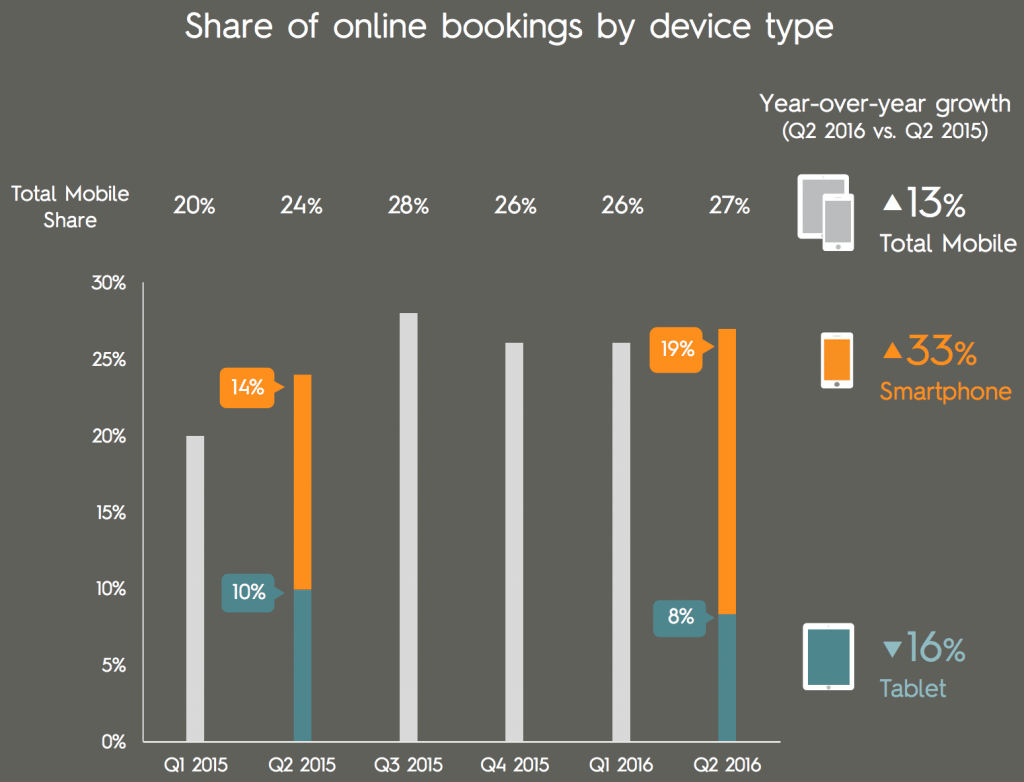
Chart 2: Mobile web brower adoption for travel bookings is far still ahead of mobile app bookings by nearly 20 percent for both smartphones and tablets.

Chart 3: Travelers use smartphones more than tablets to book hotels. This chart shows more travelers around the world book hotel stays on mobile devices when they’re staying for one night than if they’re booking longer stays.
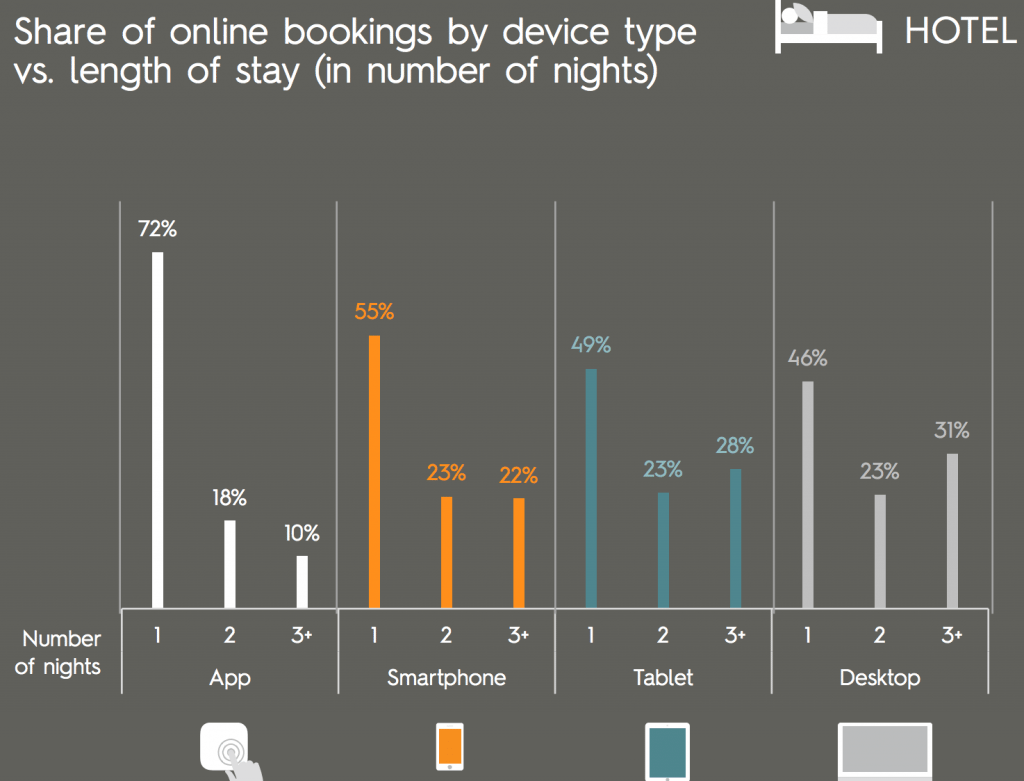
Note: France, Germany, Japan, the UK and U.S. hotel online travel agencies and brand websites are represented in this chart.
Chart 4: Hotels remain the sector where smartphone bookings are
most common, generating one in five online bookings in the second quarter 2016.
Travelers are also beginning to book more expensive packages on smartphones, particularly in Asia-Pacific.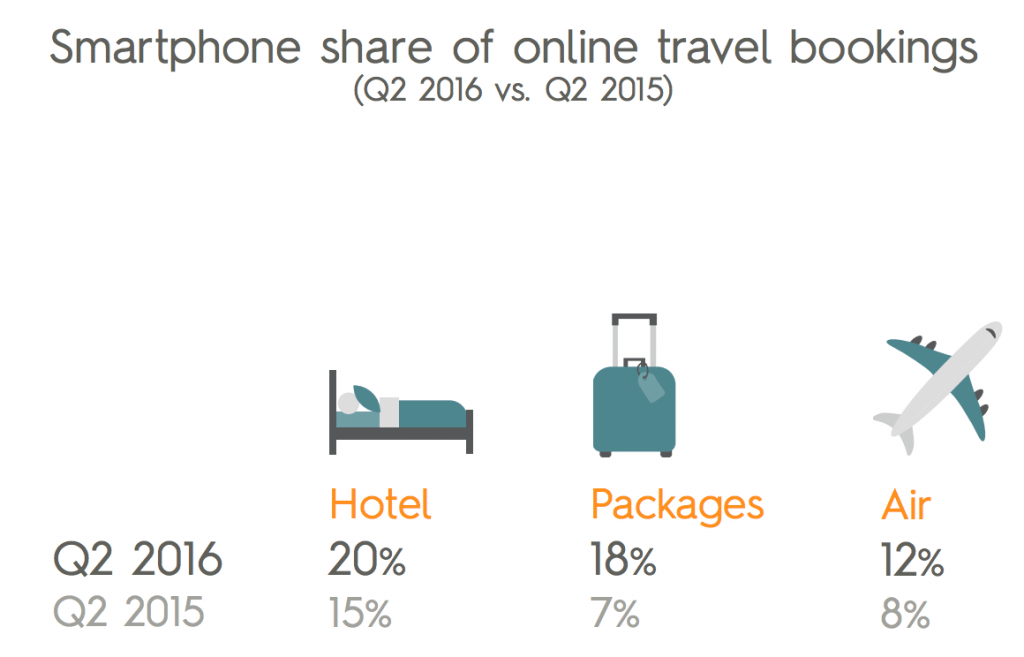
Chart 5: Cross-device or user view measurement data show that many of what appear to be single-visit hotel bookings are, in reality, just another visit from another device by the same user, according to Criteo.
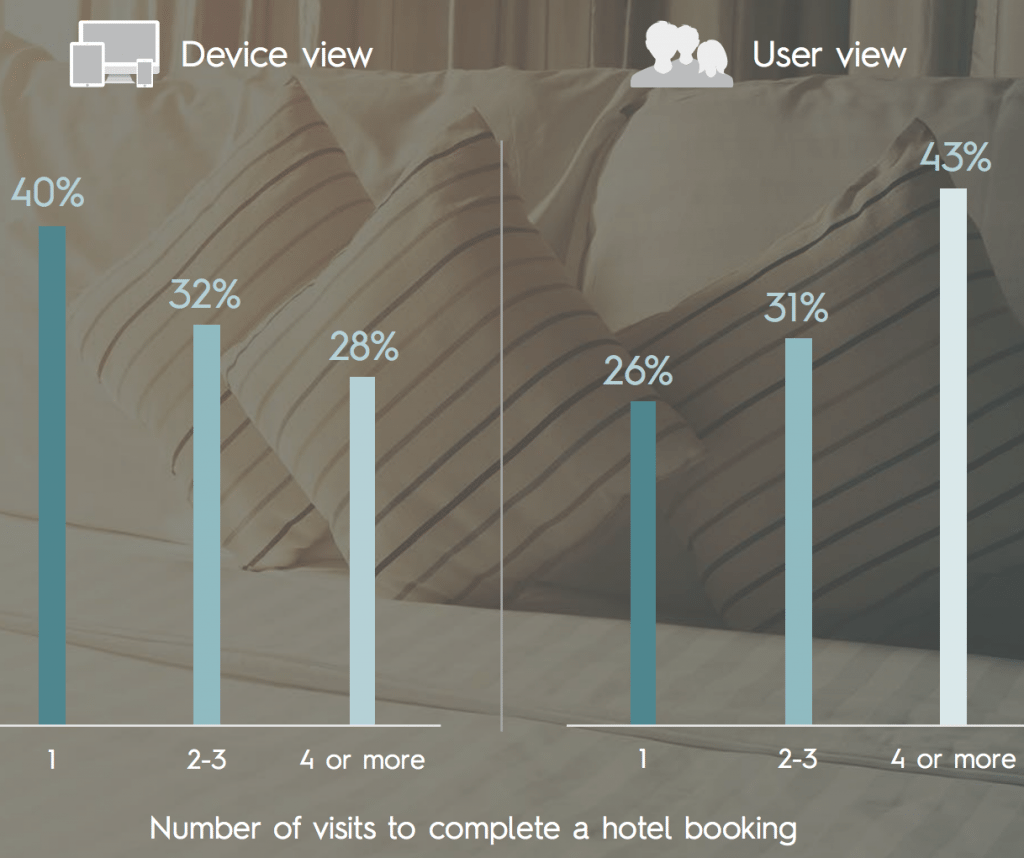
Note: France, Germany, Japan, the UK and U.S. hotel online travel agencies and brand websites are represented in this chart.
Chart 6: Japan has one of the world’s highest penetrations for smartphone travel bookings, growing 38 percent year-over-year. Smartphone bookings grew steadily in all markets except in the US where penetration is already high. Brazil, Belgium and Spain had the most year-over-year growth.
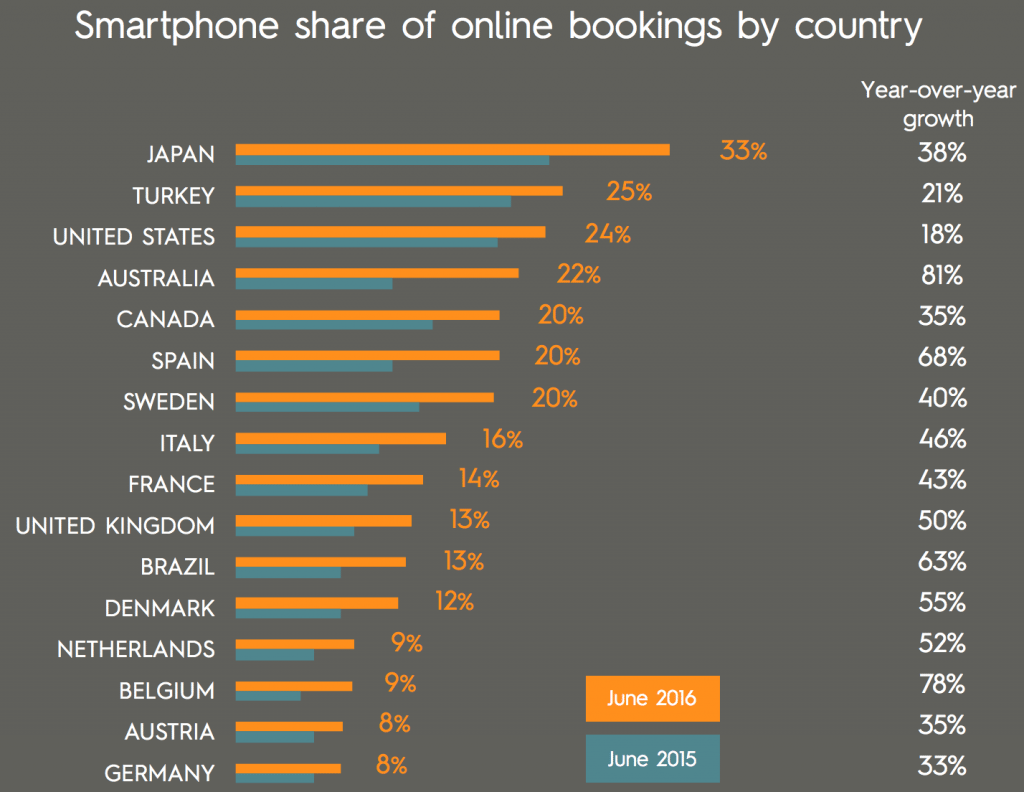
Source: Criteo
The Daily Newsletter
Our daily coverage of the global travel industry. Written by editors and analysts from across Skift’s brands.
Have a confidential tip for Skift? Get in touch
Tags: criteo, mobile booking, smartphones
Photo credit: Smartphones’ global share of mobile transactions grew by about 13 percent year-over-year for the second quarter, according to new data from Criteo. Kārlis Dambrāns / Flickr
